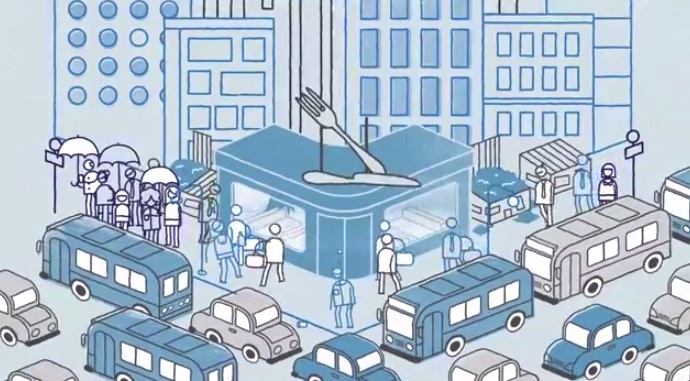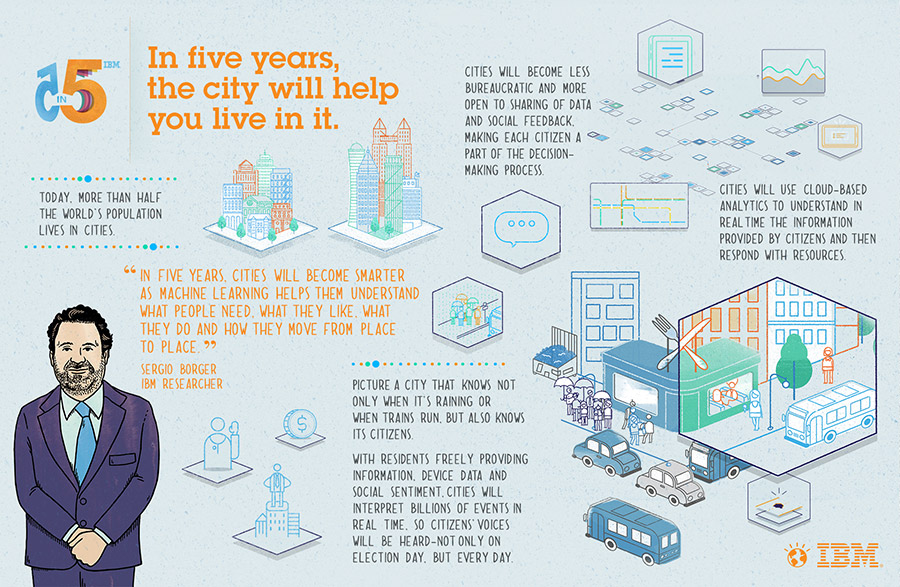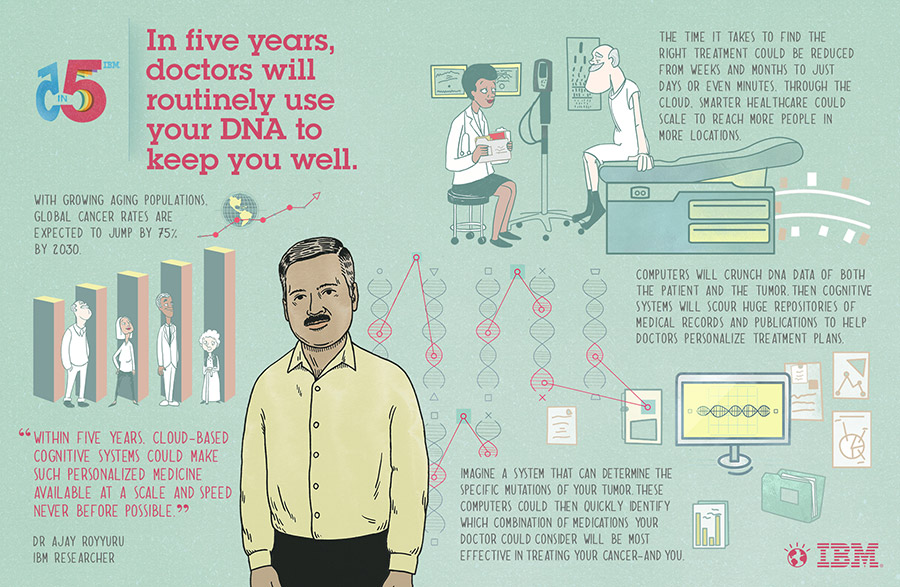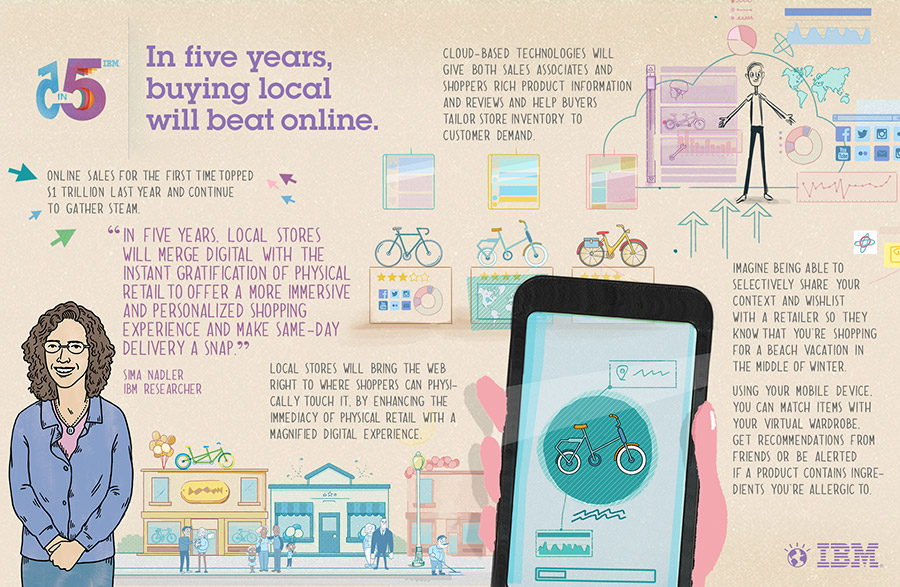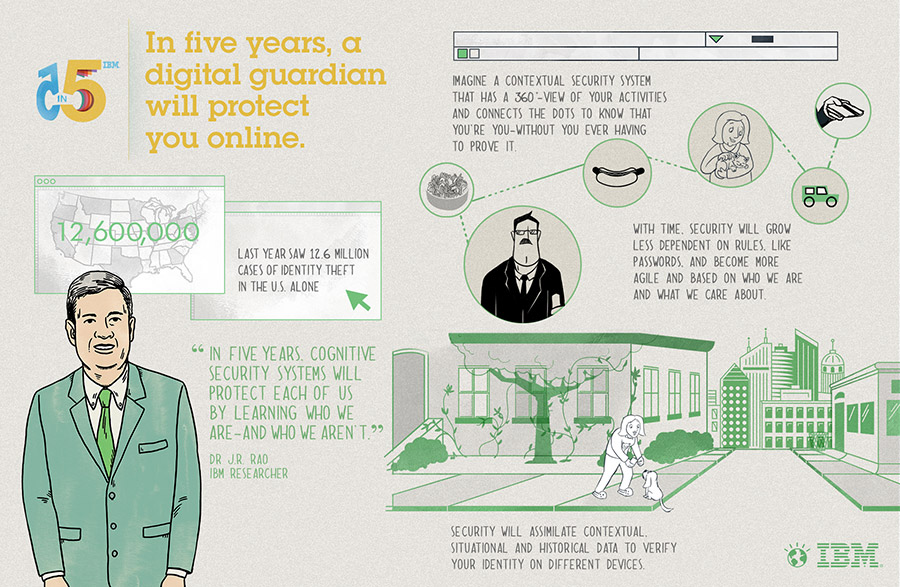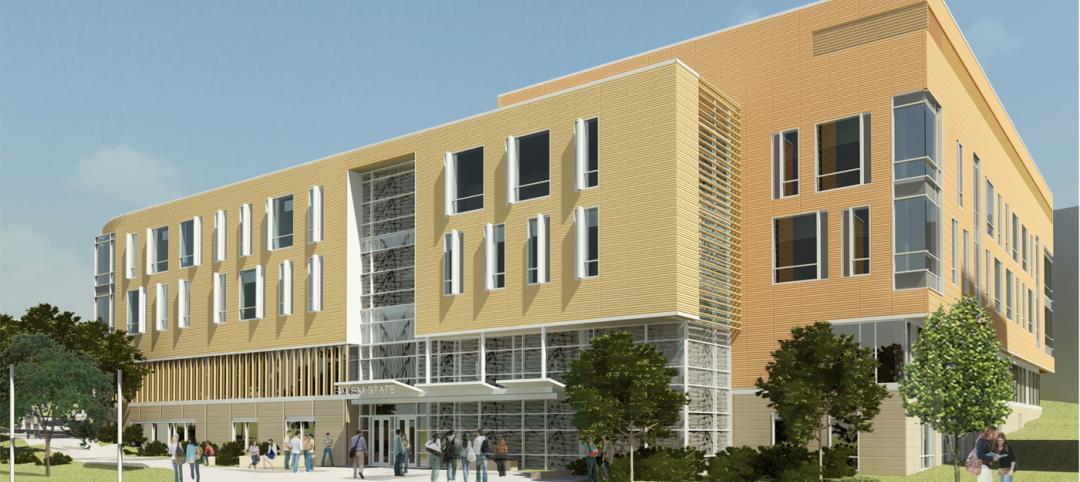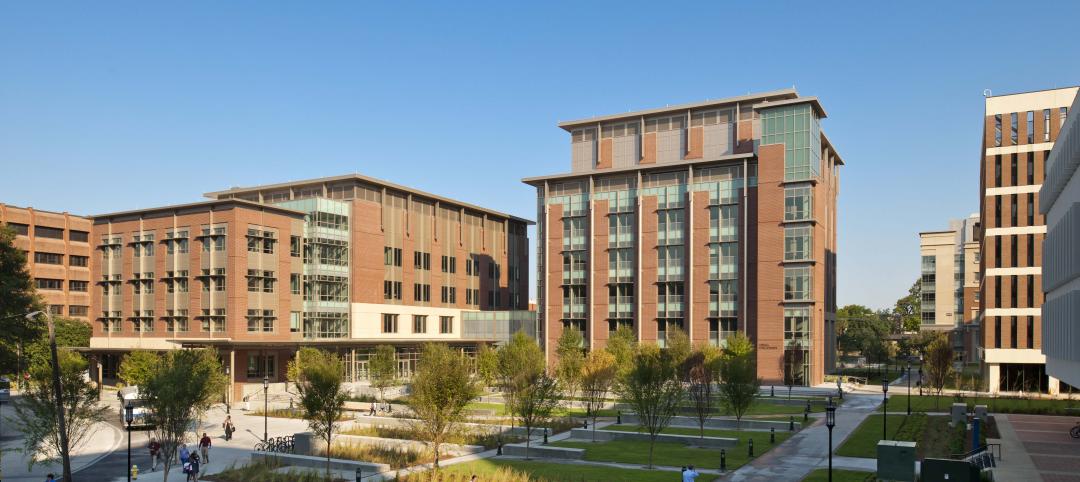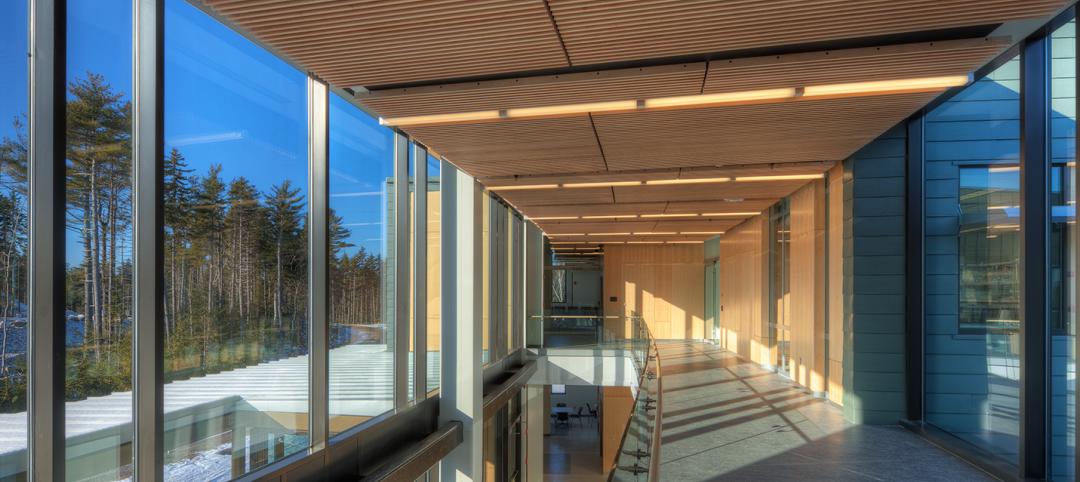Yes, it's the time of the year when everyone and their cousin reveals their bold predictions and big trends for the coming year. Tech giant IBM just released one of the better forward-looking reports: "The 5 in 5: Innovations That Will Change Our Lives in the Next Five Years," complete with videos and colorful infographics (see below).
As you would expect from IBM, all five innovation predictions are driven by emerging technologies, such as cloud computing, big data analytics, and learning technologies. At least three of their predictions have a direct relationship with the built environment, and all five are related to construction in some way.
Here are IBM's 5 in 5 innovation predictions (descriptions and graphics courtesy IBM):
1. The Classroom Will Learn You
The classroom of the future will learn about each individual student over the course of their education, helping them master the skills that match their goals.The rapid digitization of educational institutions will allow unprecedented instrumentation of the learning process. Cognitive computing, or learning technologies, will help us calculate everything we can about how each student learns and thrives, then create flexibility in the system to continually adapt and fine-tune what we deliver to that student and how this supports teachers and employers. More on this trend.
2. The City Will Help You Live In It
For citizens, smart phones enabled by cognitive systems will provide a digital key to the city. People can have fingertip access to information about everything that’s happening in the city, whether an experience is right for them, and how best to get there. Because these learning systems have interacted with citizens continuously, they know what they like—and can present them with options they might not find easily. More on this trend.
3. Doctors Will Routinely Use Your DNA To Keep You Well
Today, full DNA testing to help make treatment decisions is still rare. But cognitive systems and cloud computing may make this form of treatment mainstream. It could be done faster, more affordably and much more frequently. In addition to DNA testing for cancers, we may even see DNA-specific personalized treatment options for conditions such as stroke and heart disease. More on this trend.
4. Buying Local Will Beat Online
The technology trends will move us back to brick and mortar—but with a difference. In the future, retailers will layer increasing levels of engagement and personalization on top of the shopping experience, ultimately merging the instant gratification of physical shopping with the richness of online shopping and making same-day delivery a snap. More on this trend.
5. A Digital Guardian Will Protect You Online
Security is evolving from being based on rules, like passwords, to being automatic and made stronger through us just being us.This guardian will have your back, trained to focus on the people and items it is entrusted with based on a 360 degree of an individual’s data, devices and applications. It will make inferences about what’s normal or reasonable activity and what’s not, ready to spot deviations that could be precursors to an attack and a stolen identity. More on this trend.
Related Stories
| Feb 29, 2012
Shepley Bulfinch selected to design new Children’s Hospital of Buffalo
The firm was selected because of their past experience in designing clinically complex facilities that emphasize patient- and family-centered care and operational efficiency as well as distinctive architectural forms for many other children's and women's hospitals.
| Feb 28, 2012
Roofing contractors recognized for workmanship
Sika Sarnafil announces Project of the Year winners; competition highlights visually stunning, energy efficient, and sustainable roofs.
| Feb 28, 2012
Waste Management awards companies for sustainable construction
This recognition, highlighting sustainable performances within the construction industry, looks to celebrate the builders who achieved important sustainability milestones in 2011, as determined by Waste Management’s online Diversion and Recycling Tracking Tool.
| Feb 28, 2012
Salem State University Library & Learning Commons topped off
When it opens to students in the fall of 2013, the $60 million facility will offer new archival space; circulation and reference areas; collections; reading spaces; study rooms; instruction labs and a Dean’s suite.
| Feb 28, 2012
More than 1,000 have earned EDAC certification since 2009
Milestone achieved as evidence-based design becomes a top 2012 strategy for healthcare organizations.
| Feb 28, 2012
McCarthy completes second phase of San Diego’s Scripps Hospital
Representing the second phase of a four-phased, $41.3 million expansion and remodeling project, the new addition doubles the size of the existing emergency department and trauma center to encompass a combined 27,000 square feet of space.
| Feb 28, 2012
LUMEnergi names Weinbaum president and CEO
Weinbaum’s experience spans communications, nanotechnology, electronics components, consumer products, semiconductors, software, wireless and lighting.
| Feb 28, 2012
Griffin Electric completes Medical University of South Carolina project
The 210,000-sf complex is comprised of two buildings, and houses research, teaching and office areas, plus conference spaces for the University.
| Feb 27, 2012
Consigli complete first building for Bigelow Ocean Sciences Campus
Designed by WBRC Architects Engineers in association with Perkins + Will.
| Feb 27, 2012
Hollister completes fit-out of 41,500-sf office space in Princeton, N.J.
Intricate interior project involved construction of more than 80 offices.


